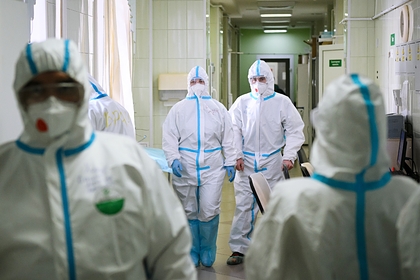Virologist Pyotr Chumakov: Soviet drugs half a century ago can help with COVID-19 
resist many infections. This was told by a corresponding member of the Russian Academy of Sciences, head of the cell proliferation laboratory at the Institute of Molecular Biology named after V.A. Engelhardt Pyotr Chumakov speaking at the meeting of the Scientific Council of the Russian Academy of Sciences “Life Sciences” on the topic: “Vaccines and new treatments for COVID-19: problems and prospects.” The broadcast is available on the event page on Facebook.
He said that in 1959 there was a polio epidemic in the USSR. Soviet scientists conducted studies of the formation of antibodies to vaccinations and found that they do not appear in a number of children. “It turned out that these children have a simultaneous infection in the intestines: infection with non-pathogenic enteroviruses, so they do not take on the polio virus and do not form specific antibodies,” Chumakov explained.
Based on the research, it was possible to create live enterovirus vaccines (ZhEV), which for several years have been thoroughly tested for various viruses in many cities of the Union. As a result, the development has shown its high efficiency.
Researchers have come to the conclusion that the use of such drugs, in theory, can protect against a very wide range of infections. At the same time, the immune response comes very quickly and lasts at least 3 weeks.
“I think such funds can help in the future with outbreaks of unknown infectious diseases, so today we need to return to large-scale studies of this method of emergency prevention”, – summed up the virologist.
Earlier, Pyotr Chumakov spoke in favor of compulsory vaccination in Russia. He noted that in the context of the spread of the delta strain of coronavirus, it is important that about 80 percent of the country's population is vaccinated.